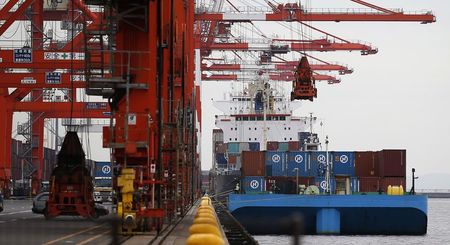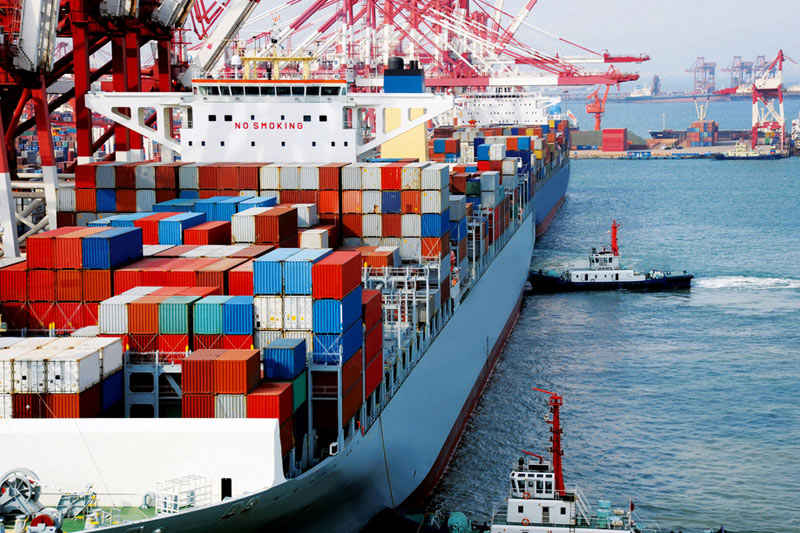By Stanley White
TOKYO (Reuters) - Japan's exports are expected to rise in September at the fastest pace in seven months on a rebound in shipments to Asia, a Reuters poll found, but signs of a global slowdown, war in the Mideast and the spread of Ebola cloud the outlook.
Exports are seen rising 6.8 percent in September from a year earlier, the poll of 26 economists found.
Imports are forecast to have risen an annual 3.0 percent, according to the poll, which would be the biggest gain in three months.
As a result, the trade deficit is likely to have narrowed to 777 billion yen but would still mark the 27th monthly deficit in a row.
Exports have disappointed for much of this year because many companies have shifted production overseas, but just when exports are finally starting to show signs of life, renewed turbulence in the global economy could snuff out this recovery and hurt Japan's economy.
"A weak yen and growth in exports to Asia are positive, but I'm worried exports will not accelerate enough by the end of this year to drive growth," said Norio Miyagawa, senior economist at Mizuho Securities Research & Consulting Co.
"The global economy is not that strong."
The finance ministry will release the trade data on Oct. 22 at 8:50 am (Oct. 22 at 12:50 a.m. BST).
Underperforming exports have been one of the weak links in the Japanese economy, which is struggling to cope with an April hike in the sales tax to 8 percent from 5 percent.
Japan's economy shrank an annualised 7.1 percent in the second quarter, with the tax hike causing the biggest contraction since the 2009 global financial crisis.
Even a sharp rise in exports in September may not be enough to quell speculation the government could delay a second sales tax hike to 10 percent scheduled for next year. April's tax hike and the second tranche due next year are needed to cover welfare spending.
A possible recession in Europe, a slowdown in China, the Ebola virus outbreak, and war with Islamic militants in Iraq and Syria cast doubt over whether Japan's exports can grow much. The Bank of Japan appears set to resist pressure for more easing or to accept that its inflation target is unrealistically high, even as growth fears roil global markets and Japan's economic indicators weaken.

People familiar with its deliberations said the BOJ is preparing to roughly halve its 1 percent economic growth forecast for this fiscal year at a meeting on Oct. 31, but will stand by its prediction that inflation will hit its 2 percent target in the year from next April.
(Editing by Eric Meijer)
